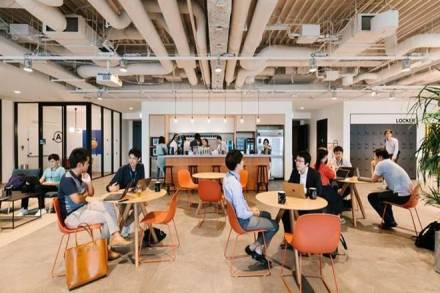Despite the fact that the companies could save anywhere between 6% and 33% in rental expenses, Indian coworking spaces fail to attract major MNCs the way their counterparts do in many European nations, revealed a recent report by Anarock on emerging asset classes. In Europe, large corporates depend on coworking for expansion in both central business districts (CBDs) and suburban business districts. Apart from flexible work environments and added facilities, coworking spaces provide a substantial cost advantage over traditional office spaces across India’s top cities.
The report found that despite all the indubitable upsides of coworking spaces, they do have limitations and restrictions. Apart from most of them lacking separate canteens or pantries for occupiers, they also bar corporates from organising events in common areas.
Maintenance of these properties is another challenge. While some large companies do use coworking spaces, these limitations have generally put majority of them off the notion of embracing coworking spaces despite the lower rents, it says.
Anuj Puri, chairman of Anarock Property Consultants, says, “On an average, coworking spaces offer a substantial price difference of 15% over traditional spaces in the top cities. While Pune offers the maximum cost advantage of 33%, Gurugram (Gurgaon) in NCR has the least at 6%. While start-ups and budding entrepreneurs make a beeline for coworking spaces, large corporates remain wary of depending on them for their expansion. This trend is quite contrary to what is witnessed in developed European nations.”
Individually, flexible workspaces in Pune offer the highest rental difference — as much as 33% against comparable spaces in traditional offices. The average monthly rental for coworking spaces in Pune’s CBD areas like Laxmi Road, Camp, Bund Garden, Koregaon Park, and Shivaji Nagar hover between Rs 5,000 and `10,000 per desk, against Rs 10,000 -Rs 12,500 per desk in traditional office spaces (assuming 100 sq ft per desk for conventional commercial office space).
According to the report, in Bengaluru, coworking spaces charge nearly 20% lower rentals in key areas such as MG Road, Millers Road, Vittal Mallya Road and Residency Road. The average monthly rental for flexible workspaces is between Rs 7,500 and Rs 15,000 per desk while the rents for traditional office spaces are between Rs 10,000 – Rs 18,000 per desk. In MMR, coworking spaces come at 14% lower rentals in key micro-markets such as Ballard Estate, Colaba, Churchgate, Fort and Nariman Point. The average monthly rentals in coworking spaces is between Rs 18,500 and Rs 28,500 per desk, while for traditional office spaces it hovers between Rs 24,500 – Rs 30,000 per desk.
In Chennai and Hyderabad, the rentals for coworking spaces in CBD areas are 9% lower. The average monthly rentals for flexible workspaces in Chennai’s key areas like Anna Salai, Nungambakkam and RK Salai are between Rs 6,000 and Rs 14,000 per desk against Rs 7,000 and Rs 15,000 per desk for regular office spaces. In Hyderabad, coworking rentals in key office areas like Gachibowli, Madhapur, Manikonda and Kondapur range between Rs 5,000 and Rs 8,000 per desk, opposed to Rs 6,000 – Rs 9,000 per desk in traditional office spaces.
In NCR’s Gurgaon, flexible workspaces command only 6% lower monthly rentals of Rs 9,000 – Rs 14,000 per desk, against Rs 9,500 – Rs 15,000 per desk in regular office spaces. A major factor keeping the price difference between the two lows in Gurgaon is the massive demand for coworking spaces by the start-ups and entrepreneurs in the CBD areas of the city. Gurgaon is one of the major coworking hubs in the country. Also, considering high demand for commercial spaces in there, supply for Grade A commercial office spaces is low in the city, the report adds.
